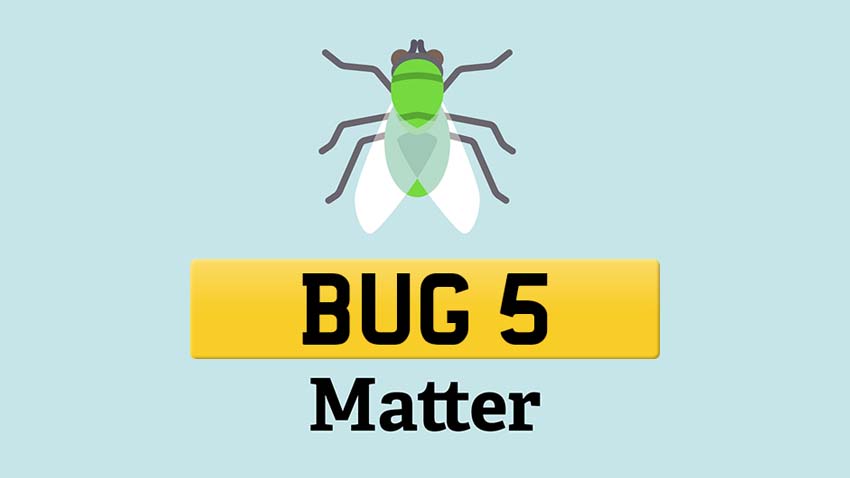It's an annoying fact of life that cleaning one's car more or less guarantees certain things: rain and the attention of passing birds. Those of us who live near the coast can predict, almost to the second, when the first gull-donated blemish will appear on our pristine bonnets. And, of course, the first journey of any length will leave evidence of the carnage wrought by our windscreens and number plates as they ruin the day for countless flying insects.
Well, before you wipe over the bug graveyard that is your front number plate, just read on for a bit to see how some good can come of this whole arthropod massacre thing.
Unlikely heroes
A quick bit of context: insects may be small but their importance is huge. We've probably all heard about the scary consequences of losing pollinating species such as bees, butterflies, wasps, hoverflies and even beetles. So much of our food depends upon successful pollination that a world without these insects could struggle to survive. Insects form a vital link in the food chain for birds, hedgehogs, spiders, bats, fish, frogs, toads and other species. They also provide a useful pest control service: ladybirds, for example, eat the greenfly that plague our gardens and allotments.
Creepy and crawly they may be, but insects pull more than their weight and we need them.
What's this got to do with cleaning the car?
Right, back to your number plates. Buglife is an organisation dedicated to preventing the extinction of the UK's 40,000 species of invertebrates - the group that includes insects. In order to monitor bug populations, obviously some kind of census is required. Buglife has devised a way to use your car's insect kill-count to help inform their population estimates. To assist in the effort, all you need to do is download their app and take a photo of your bug-splattered front number plate at the end of your journey.
In previous years, the process involved getting a physical grid card from Buglife and using that to count the casualties. This year, their poetically named "Splatometer" has gone digital and all you have to do is snap a quick photo with your phone.
This year's survey runs from June 1st to August 31st, so there's still time to contribute to this vital conservation project. Follow the app download links on the Buglife website at Buglife.org.uk or search your app store for "Bugs Matter".
Here's how it works:
- Download the "Bugs Matter" app to your phone;
- Clean the number plate before making your journey in a vehicle;
- When you reach your destination, count the number of bug splats across your entire number plate;
- Use the “Virtual Splatometer” within the Bugs Matter App to get the best photograph possible;
- Submit the photo and details via the app.
- The app also includes a tutorial and some safety advice.
How number plates could help to save the world
Data from this exercise enables researchers to compare the number of insect impacts per mile/km driven with the statistics from previous years. The results will give some idea of changes in the abundance of bugs over time and help drive efforts to combat it.
The 2022 survey showed that the number of insects counted on vehicle number plates in the UK declined by 64% between 2004 and 2022. These results are in line with other scientific research that shows similarly declining bug populations worldwide. That's pretty startling.
The number of insects we kill with our number plates isn't large enough to increase the overall rate of decline, but assisting research by counting our unfortunate accidental hitchhikers can make a big difference - by helping us to understand what's happening to our essential biodiversity. We need insects.
It costs us nothing to download the app and start helping. Then we can clean our plates again.
